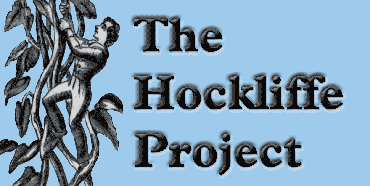Stories Before 1850. 0050: Anon., The Adventures of William Waters, and His Ass Bob
| Author: |
Anon. |
| Title: |
The adventures of William Waters, and his ass Bob. Ornamented with neat wood cuts |
| Cat. Number: |
0050 |
| Date: |
No date but c.1815? |
| 1st Edition: |
|
| Pub. Place: |
Otley, West Yorkshire |
| Publisher: |
W. Walker, at the Wharfdale Stanhope Press |
| Price: |
1d |
| Pages: |
1 vol., 16pp. |
| Size: |
10.5 x 6.5 cm |
| Illustrations: |
Frontispiece, outside back cover vignette plus seven further woodcuts |
| Note: |
|
Images of all pages of this book

Introductory essay
The book opens with a framing device, a child asking his father how long it has been since the ass Bob was sold to William Walters. Seven years, replies the father, and proceeds with the story of how good a boy William was. William's father, a drunkard, died when he was young, and William, his mother, and his three siblings, were sent to the workhouse. But William rejoiced in working hard, and earned his living taking letters from one town to another, which is why he needed the ass. William was never to be found wasting time in play, but was always working. He became so rich that he bought his family out of the workhouse to live with him in his cottage.
On one occasion William met a blind sailor who lost his sight with Nelson at the Battle of the Nile. The sailor told his life-story and made his dog, Toby, perform tricks. William gave the sailor sixpence. Next, William set up his brother as an apprentice to a butcher (though it is a barber who, incongruously appears on the outside back cover). He flourished and ended up owning a share in the business, eventually asking William to become a partner. So affluent had the family become that Bob the ass did little work. And thus we return to the framing device, the father remarking to his son: 'Such, Henry, said Mr Jenkins, are the great blessings of providence on those who are virtuous and industrious.' (p.16)



